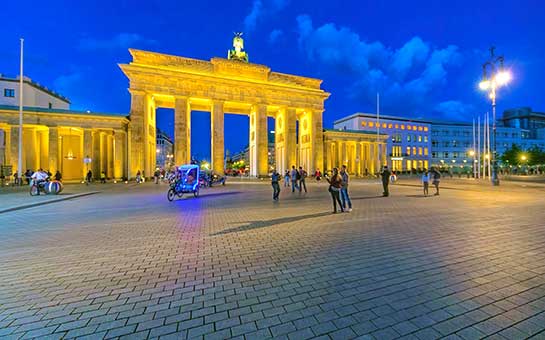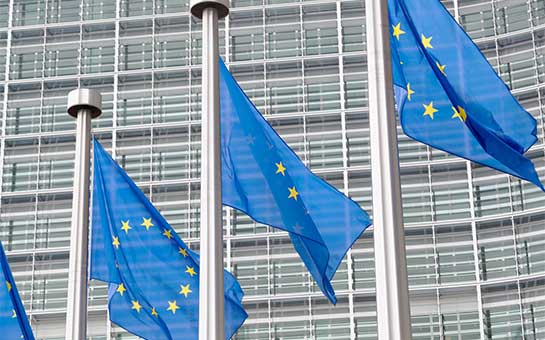Berlin, the capital of Germany, has been a stage for events that shaped world history. Some of the landmarks of the city—including the Berlin Wall Memorial, Checkpoint Charlie, and the Prussian Palace—still stand as reminders of the past. But the city has moved on and now attracts millions of tourists from across the world.
Before you travel to Berlin, take a look at travel medical insurance. During any unexpected turn of events, your insurance plan could very much come in handy.
Travel Medical Insurance for Travelers In Berlin – FAQs
Berlin offers a wide range of experiences, from dynamic entertainment and cultural institutions to a variety of sports. Although Berlin is safe for your trip, you can never anticipate a medical emergency. Thus, before you travel to Berlin, it's worth taking look at a travel medical insurance plan.
Why should I buy travel medical insurance for my Berlin trip?
If you require a Schengen visa to travel to Germany, then travel medical insurance is compulsory.
Plus, you never know when you'll face a medical emergency, and treatment of injuries in Germany can be expensive. It can sink your savings. But with travel medical insurance, you'll have a financial safety net in place in the event of any unexpected accidents, illnesses, or injuries.
What should I look for in my Berlin travel medical insurance?
Check for the following benefits in your travel medical insurance plan:
- Coverage for emergency medical expenses
- Ability to extend the duration of your coverage
- Emergency medical evacuation and repatriation coverage
- Return of mortal remains
Make sure you buy travel medical insurance before traveling to Berlin. This way, you'll save your bank balance from getting sucked into huge hospital bills.
Top Tourist Destinations in Berlin
Berlin Wall Memorial
Located in the middle of the city, the Berlin Wall was built in 1961 to divide the city into two halves: West and East Berlin. Though it was completely demolished in 1989, the memorial preserves an original section of the wall and the escape tunnels. Stop at the visitor center before you go sightseeing at the Berlin Wall Memorial. Here, you can watch a short film on the history of the Berlin Wall and arrange for a guided tour.
Museum Island
Also called Museumsinsel, this UNESCO World Heritage Site is an ensemble of 5 famous museums. Explore the extensive collections of artifacts, royal treasures, Byzantine art, and splendid paintings. Each museum displays a different aspect of German history. If you don't have much time to spare, visit the museums that offer collections of your taste.
Reichstag Building
The Reichstag building symbolizes Germany's path from its dark past to a brighter future. It has been burnt, demolished, bombed, and rebuilt, but it still stands as the most iconic monument in Berlin. Take a lift to the spectacular glass dome. From here, you can enjoy a 360° view of the city. Make sure you reserve your tickets in advance to cut the usual two-hour wait.
Brandenburg Gate
Located in Pariser Platz, just a block away from the Reichstag Building, the Brandenburg Gate is a symbol of peace and unity. Its sumptuous design is inspired by the Acropolis entrance in Athens. Made entirely of sandstone, the monument reflects neoclassicism. The Brandenburg Gate is at its best at night.
Berliner Fernsehturm
Standing at 650 feet (about 200 meters), Berliner Fernsehtrum is the tallest structure in Germany. Given its height, this Television Tower can be spotted from every corner of the city. Take a lift, and head over to the observation deck at the top. Enjoy the stunning view of the city with a glass of premium cocktail. You can also book a reservation at the revolving restaurant located on the top of the tower.
Key Guidelines for Travelers in Berlin
Weather Conditions
The best time to visit Berlin is between May and September. The weather is warm and pleasant. But hotels and flights get quite expensive around this time. Although winter can be harsh, it's the best season for travelers on a tight budget. You can get a great deal on hotels and flights during this season.
Getting Around the City
When you're in Berlin, take advantage of its excellent buses, trams, trains, and underground services to get around. Driving around the city is not preferable. The traffic congestion is frequent, and parking spots are expensive and hard to find. Cycling is a good option for traveling shorter distances. Rent a bike and make your way along the bike lanes.
Safety Concerns
Berlin is relatively safe, compared to many other European cities. The city is under a high alert and has seen increased security following 2018 terrorist attacks. You're unlikely to encounter any criminal activity if you follow common-sense safety precautions. Here are a few tips for you:
- Areas such as Gorlitzer, Neukollu, and Kreuzberg aren't tourist-friendly. Avoid traveling to these places.
- Bike theft is a serious issue in the city. If you rent a bike, make sure you lock it up safely while parking.
- Avoid walking around while flaunting your expensive clothes and accessories such as sunglasses and handbags. In short, don't give away to the pickpocketing gangs that you're a tourist.
Medical Concerns
Although no vaccination is mandatory for your trip to Berlin, make sure you're covered for diphtheria, tetanus, and mumps. Tap water in Berlin is safe for drinking. However, most tourists opt for bottled water. Look out for bug and insect bites. Carry an insect repellent spray with you always.
Before You Travel to Berlin: Do These
Note some important contact information that would be useful in Berlin in case of an emergency. For police emergencies, dial 110, and for a medical emergency, dial 112.
If you take any prescription medications, be sure to bring enough with you to last the full duration of your trip.
Be prudent, and buy travel medical insurance suitable for you and your travel mates. Don't just buy the first plan you see; take the time to compare your options and select the plan that best fits your needs. Enjoy Berlin with peace of mind!

